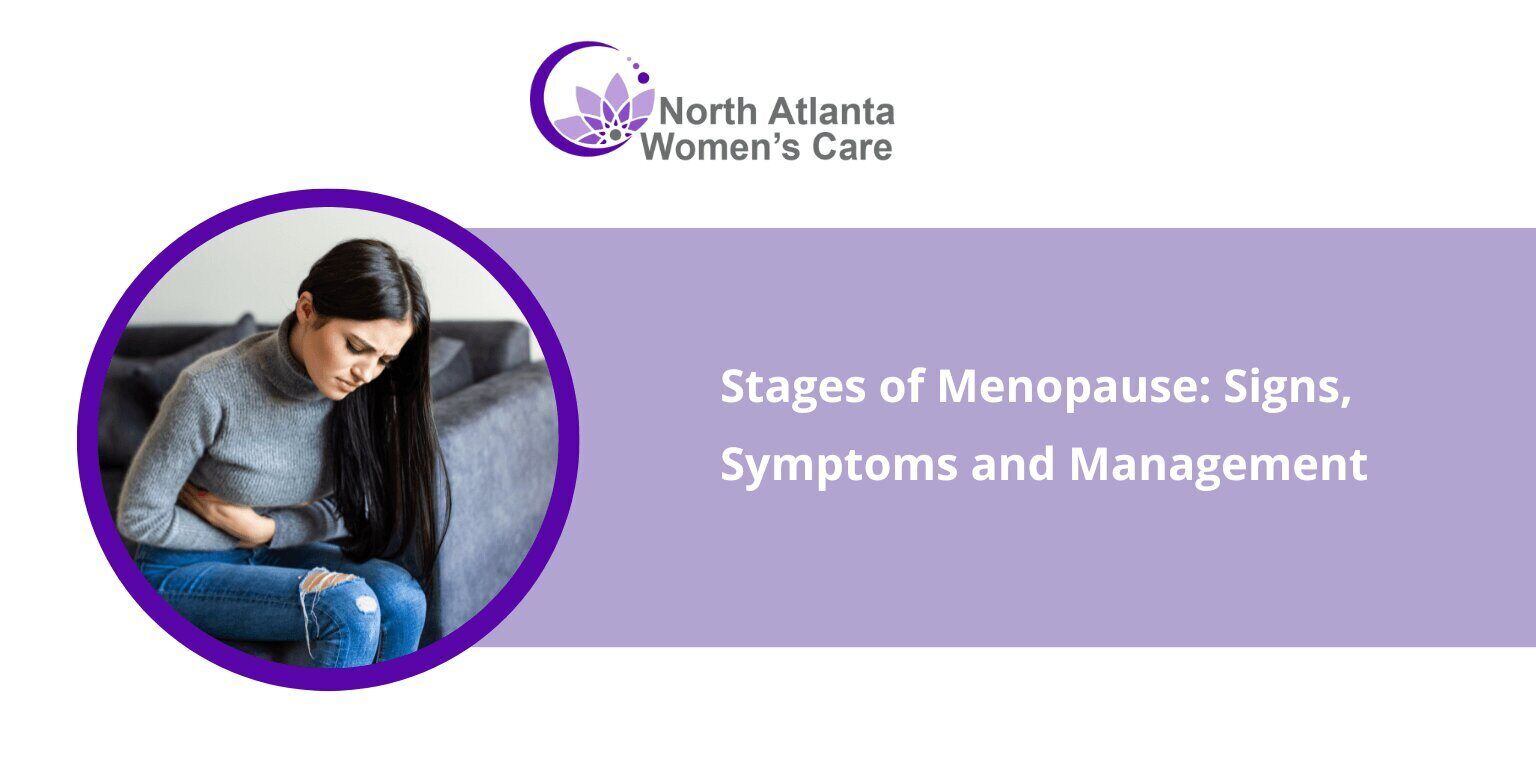Stages of Menopause: Signs, Symptoms and Management

Menopause is a natural biological process that indicates the end of a woman's menstrual cycle and reproductive years. Every year, millions of women transition through this phase. In fact, a survey in the United States found that 81% of women experienced menopause symptoms in 2023 alone. Understanding the stages of menopause, their symptoms, and management strategies is essential for addressing the associated physical and emotional changes. Let us begin by defining menopause.
What Is Menopause?
Menopause is defined as the point in time when a woman has not had a menstrual period for twelve consecutive months. This transformation involves considerable hormonal changes, particularly a reduction in the production of estrogen and progesterone by the ovaries. The transition happens in three stages, as discussed below.
What Are the Three Levels of Menopause?
Menopause is grouped into three stages: perimenopause, menopause, and postmenopause. It is indicated by the end of menstrual periods due to a decline in hormone production, particularly estrogen and progesterone. Let's understand the unique characteristics and challenges of each stage:
Perimenopause
Perimenopause is the period leading up to menopause. It starts in a woman's 40s but can begin as early as the mid-30s. This stage is denoted by fluctuating hormone levels, which can cause various symptoms such as:
- Irregular periods: During perimenopause, many women experience irregular periods due to fluctuating hormone levels, leading to unpredictable menstrual cycles.
- Hot flashes: Hot flashes, a common symptom of perimenopause, are sudden feelings of intense heat that can cause sweating and discomfort, often disrupting daily activities and sleep.
- Sleep disturbances: Hormonal changes during menopause can lead to sleep disturbances, including difficulty falling asleep, staying asleep, and experiencing night sweats.
- Mood changes: Mood changes, such as irritability and depression, are often reported by women starting menopause due to hormonal fluctuations and stress.
Management Tips
Perimenopause can last for several years, and its duration is influenced by factors such as genetics and overall health. To manage perimenopausal symptoms, one can follow these steps:
-
Lifestyle changes: Follow a healthy diet, regular exercise, and stress management techniques.
- Medical interventions: Hormone therapy and alternative treatments such as herbal supplements.
- Symptom management: Over-the-counter remedies for hot flashes and sleep aids for insomnia.
Menopause
Menopause is officially diagnosed when a woman undergoes twelve months without experiencing a menstrual period. This stage marks the end of reproductive years and is often accompanied by symptoms that persist during perimenopause. Apart from the above, new menopause symptoms may include:
-
Vaginal dryness: Vaginal dryness, caused by decreased estrogen levels during menopause, can lead to discomfort and pain during intercourse.
- Weight gain: Many women experience weight gain during menopause, particularly around the abdomen, due to metabolic changes and hormonal shifts.
- Thinning hair: Thinning hair and hair loss can occur during menopause as estrogen levels drop, affecting hair growth and texture.
- Sweating: Hormonal changes may cause sudden sweating during menopause.
Managing Menopause
Diagnosis and management of menopause involves evaluating symptoms and conducting hormone-level tests. Menopause treatment and symptom control could be done through the following steps:
- Hormone replacement therapy (HRT): HRT can help alleviate symptoms like vaginal dryness and hot flashes
- Bone density and cardiovascular health: Involves frequent checkups and providing supplements for calcium/vitamin D.
- Coping strategies: These include stress reduction techniques, maintaining a healthy weight, and regular physical activity.
Postmenopause
Postmenopause refers to the years following menopause. While many symptoms of menopause may continue, they become less severe over time. However, postmenopausal women are at increased risk for certain health conditions, such as osteoporosis and heart disease. Some symptoms seen in the postmenopausal stage are:
- Vasomotor symptoms: Symptoms like hot flashes and night sweats, which are caused by changes in the body's temperature regulation during menopause.
- Headache: A persistent or recurrent pain in the head, which some women may experience more frequently during menopause.
- Stress incontinence: Unintentional leakage of urine during physical activities or when coughing or sneezing, often associated with weakened pelvic floor muscles during menopause.
- Mental confusion: Episodes of disorientation or difficulty thinking clearly, possibly due to hormonal fluxes.
Management Strategies
Postmenopause is a lifelong condition that can be managed by making significant changes in one’s daily routine and habits. Some tips to maintain your physical and mental health include:
- Long-term health strategies: Maintain a balanced diet, exercise regularly, and undergo routine health screenings.
- Cardiovascular health: Depends on maintaining healthy blood pressure and cholesterol levels.
- Preventive care: Regular screenings for diseases and other age-related health issues are important for long-term well-being.
Menopause Management: Understanding the Signs and Making Healthier Choices
Menopause is a natural change for every biological woman. The three stages of menopause are perimenopause, menopause, and postmenopause. Evaluating the signs and symptoms is the first step toward addressing these stages. Consulting an experienced professional, taking proper steps, and managing overall health can help manage menopause.
Find Comprehensive Care for Menopause at North Atlanta Women’s Care
Menopause comes with many challenges. It is important to seek compassionate and effective healthcare to manage its symptoms. At North Atlanta Women’s Care, we strive to provide complete treatment for various women’s health-related conditions, including menopause. Contact us today and lead the way to a healthier and more comfortable life after menopause.
Comments are closed

